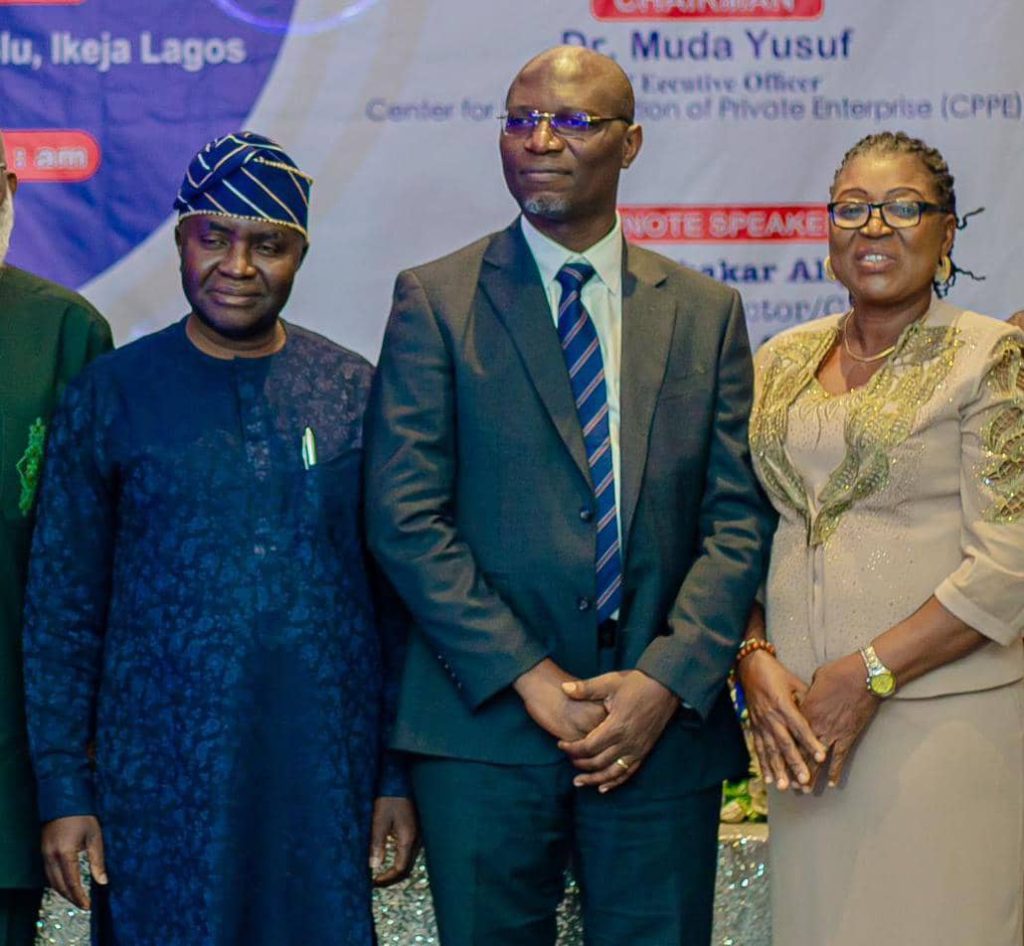
L-R Dr. Muda Yusuf, CEO, CPPE, Dr. Emomotimi Agama, DG SEC and Mrs Yemisi lzuora, Publisher Oriental News Nigeria Online at the 2024 Oriental News Summit Today 25th July, 2024 in Lagos.
The Director General (DG) of the Securities and Exchange Commission (SEC), Emomotimi Agama has said that embracing a green economy would bring numerous benefits, including economic diversification, job creation, and improved public health to Nigeria.
Agama, who stated this while speaking as the guest speaker at the Oriental News 2024 Summit in Lagos stressed the importance of developing green infrastructure in urban areas to enhance air quality and reduce greenhouse gas emissions.
At the event themed “Green Economy, Sustainable Growth and Infrastructure Transformations,” Dr. Agama emphasized the importance of embracing a green economy as a solution to the diverse problems facing Nigeria enjoining both the government and the private sector to adopt this approach.
He noted that Nigeria’s six geopolitical zones face unique climate challenges, necessitating tailored policies and strategies to develop a sustainable green economy.
“The backbone of our efforts must be the development of robust policies and strategies,” he said.
“The green economy resonates with nature, and Nigeria, with its diverse landscapes from deserts to marine environments, is uniquely positioned to lead in this area.”
He expressed concern over Nigeria’s historical neglect of an economy that could sustain its natural resources, saying this attitude has led to widespread poverty.
Dr. Agama explained that there is the need to address foundational issues through a green economy, focusing on reducing carbon emissions and preserving biodiversity, noting the significant impact of environmental degradation on public health and local industries, such as the fishing sector, which now relies heavily on frozen fish due to pollution.
The SEC DG highlighted the paradox of Nigeria’s suffering amid abundant natural resources, urging the country to harness its opportunities, such as turning waste materials into valuable products, positing that transitioning from an oil and gas-dependent economy to a green economy, would enhance resilience against global oil price volatility and reduce environmental impact.
He equally addressed the need for environmental sustainability, pointing out significant challenges such as water pollution, soil degradation, and deforestation while advocating for tree planting initiatives and the sustainable use of natural resources like the neem tree, known for its medicinal properties.
According to Dr. Agama, embracing a green economy would bring numerous benefits, including economic diversification, job creation, and improved public health, emphasizing the importance of developing green infrastructure in urban areas to enhance air quality and reduce greenhouse gas emissions.
Dr. Agama also discussed the role of renewable energy in transforming Nigeria’s transportation sector, particularly through electric vehicles, and outlined the government’s commitment to achieving 30% of total electricity generation from renewable sources by 2060, as stated by the Energy Commission of Nigeria.
In conclusion, Dr. Agama called for public-private partnerships to achieve a green economy, stressing that the government cannot do it alone. He encouraged Nigerians to pursue education and careers in renewable energy and green technology, emphasizing the need for a collective effort to address environmental challenges and seize the opportunities presented by a green economy.
